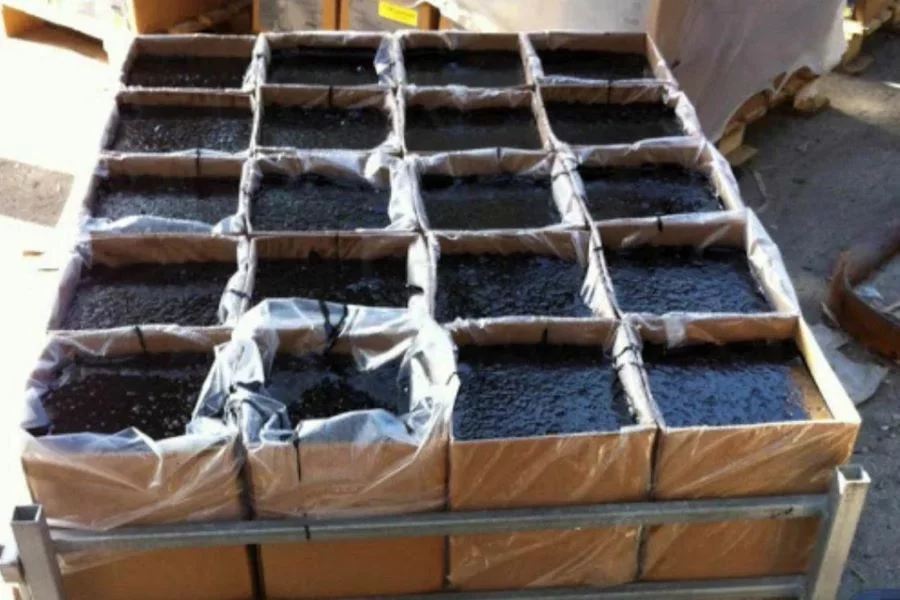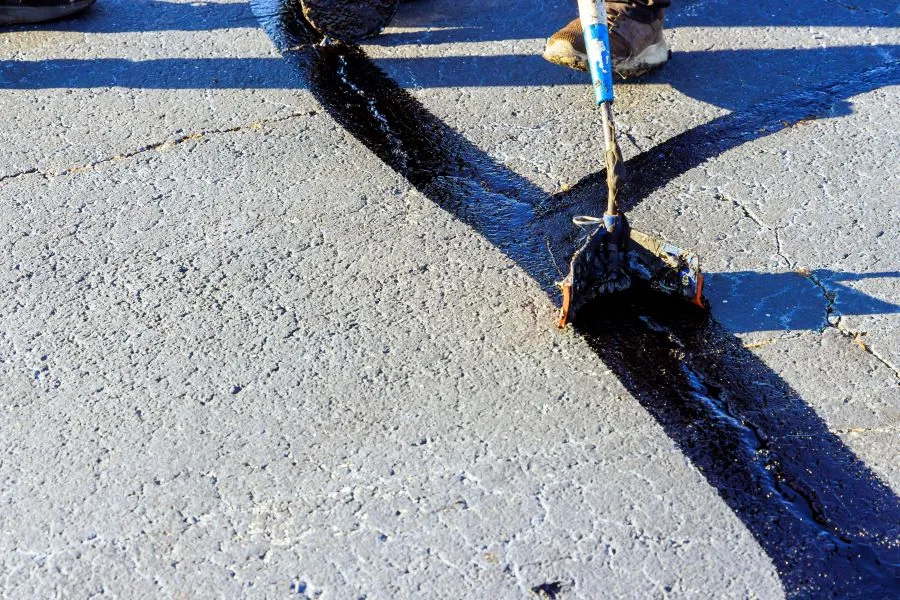There are many benefits of rubberized asphalt sealants that give them an edge over traditional asphalt sealants. One of the biggest advantages is that when it comes to maximizing the longevity of your driveways, parking lots, and roadways, rubberized asphalt sealants are the best sealant for the job.
Rubberized asphalt sealants can help make road maintenance a breeze. Combined with the durability and performance of this material, you’re guaranteed a long-lasting solution for road applications.
In this article, we talk about what sealants do and why rubberized asphalt sealants are perfect for tropical climate applications.
What Do Sealants Do?
Sealants serve various functions in road maintenance. These materials can function as a waterproofing barrier which helps prevent water from infiltrating the asphalt pavement’s structure. It can also play a role in pothole prevention on asphalt surfaces.
Aside from that, a road must be regularly maintained by applying sealant to cracks and joints to prevent moisture damage. If moisture seeps into the structure of the road, the road’s deterioration can speed up. Sealants also play a role in preventing harmful substances such as debris, oil, and other harmful chemicals from destroying the pavement’s integrity.
Finally, rubberized asphalt sealants are known for their flexible and elastic nature – a feature that’s especially useful in the Philippines.
The Philippines is a tropical country that experiences mercurial weather, meaning the sudden change from hot to rain can damage the road. Rubberized sealants can help maintain the integrity of the road by expanding and contracting with the pavement due to temperature fluctuations. This can help prevent the formation of new cracks while also ensuring that the road remains structurally sound for longer.
Therefore, rubberized sealants play an essential part in road construction and maintenance especially in tropical countries like the Philippines.
What are Rubberized Asphalt Sealants Composed of?
Rubberized asphalt sealants are composed of asphalt, polymers, and additives. Each of these components contributes to the rubberized sealant’s overall durability and performance.
- Asphalt ensures that rubberized sealants can easily adhere to asphalt surfaces while remaining flexible and waterproof.
- Polymers enhance the flexibility, durability, and longevity of rubberized sealants in comparison to traditional ones.
- Additives depend on the product. Some rubberized asphalt sealants contain additional ingredients for color, structure, or easier application.

Why Choose Heat-Resistant Asphalt Sealants for Philippine Road Projects?
Due to the country’s position above the equator, it experiences consistent heat throughout the summer. Over the years, the country has started to experience record-breaking highs in temperature, which makes it crucial for companies to use heat-resistant asphalt sealants for road projects in the country. By investing in high-quality materials like these, the road is guaranteed to withstand intense temperatures and powerful storms.
Listed below are more reasons why you should choose heat-resistant asphalt sealants for your road construction or maintenance project:
Pothole Prevention and Repair
Because of the composition of rubberized asphalt sealants, you’re guaranteed a material that’s flexible and durable compared to traditional sealants. Rubberized sealants can easily be applied to roads, and they can help prevent water infiltration because they can easily seal the cracks and prevent water seepage.
Additionally, rubberized sealants can also be used as an asphalt road patch for potholes.
Increased Longevity
Due to the elasticity of rubberized sealants, you can be sure that this sealant will adhere better to the surface. This means that dirt, dust, and harmful substances are less likely to seep into the structure of your road. Thus, extending the lifespan of your road.
So, while rubberized asphalt sealants may be more expensive, they’re definitely worth it.
Better Skid Resistance
Rubberized asphalt sealants have a rougher texture, which can enhance the grip of tires on the road. This can help reduce traffic accidents, especially during the rainy season when the roads are slippery.

Application Considerations for Road Pavement Sealants in the Philippines
Now that you know the benefits of using rubberized sealants for your road construction and maintenance’s operations, here are some things you should consider before applying them to a site.
Weather
Before you apply sealants to the site, make sure to check the weather forecast for rain or high humidity.
If it looks like it’s going to rain or if it’s too humid, try to schedule this task for another day. Trying to push it on the same day can lead to the rubberized sealant not adhering well to the application site.
Surface
Make sure that the surface where the sealant will be applied is cleaned. If there’s oil, dust, or debris on the site, the sealant may not stick to the application surface.
Pavement Condition
If the road is old, you may want to look into renovating it instead. Sealants are a quick fix for surface problems but, if the road is over 15 years old, it may be best to renovate it instead.
Remember, sealants can only help secure strong foundations. If the integrity of the road isn’t good to begin with, it won’t be able to do its job properly.
Protecting Philippine Roads from the Tropical Climate with Rua Seguridad
Rubberized sealants make road construction and maintenance much easier because of how easy it is to apply. Despite its higher cost in comparison to traditional sealants, the benefits that road construction and maintenance companies have make it a worthwhile investment.
If you’re looking for a supplier for high-quality rubberized sealants, you can reach out to us at Rua Seguridad and we can provide you with the materials you need for your project.
Contact us today to know more about our products!



